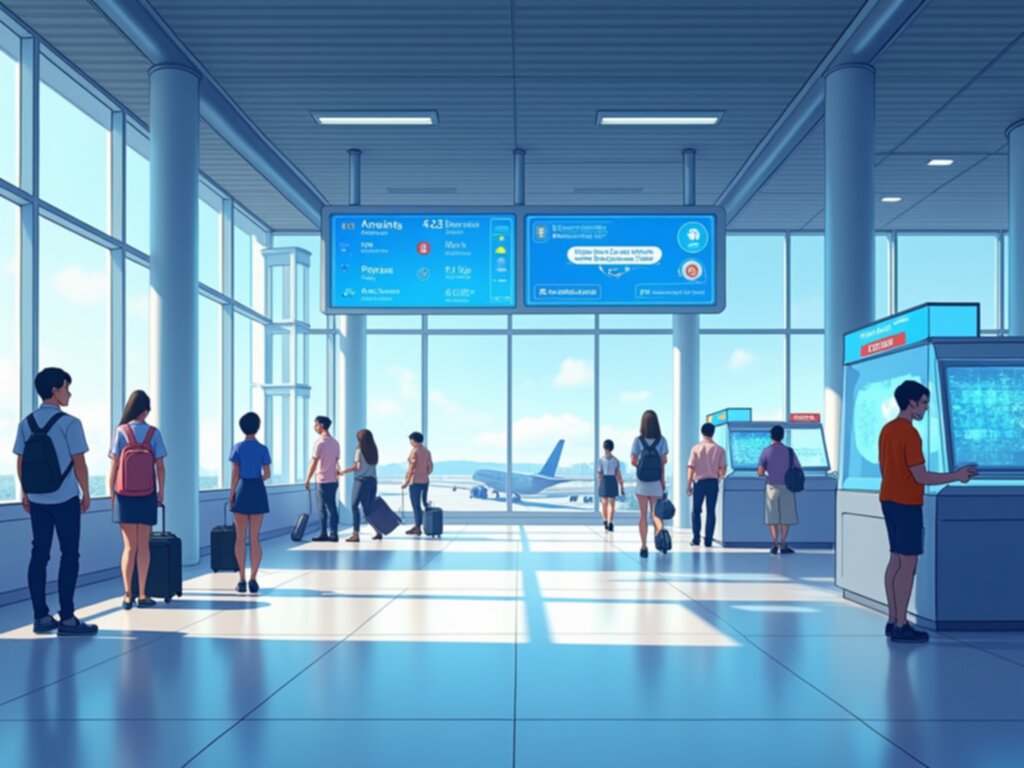American Airlines' Cancellation Compensation What You Need to Know in 2024

The air travel system, for all its technological marvels, remains stubbornly susceptible to disruption. When an American Airlines flight doesn't proceed as scheduled, the immediate concern shifts from destination to recompense. Navigating the regulations and the airline's own policies surrounding compensation for cancellations can feel like trying to decipher a poorly translated technical manual. It's a situation where a few hours of delay can translate into substantial financial headaches, and understanding the framework for recovery is essential for anyone flying the friendly skies with AA.
I've been tracing the recent adjustments to passenger rights enforcement, particularly concerning major carriers like American. What I've found suggests that while the baseline protections are relatively stable, the execution and the specific amounts offered are where the real friction occurs. We need to move past the boilerplate statements and look at the actual mechanics of what an affected passenger can legitimately expect to receive in the current operational climate.
Let's zero in on the Department of Transportation (DOT) rules, which form the bedrock of U.S. carrier obligations, as these apply directly to American Airlines domestic operations. If American cancels a flight, regardless of the reason—be it weather, staffing, or mechanical failure—the passenger is entitled to a full refund if they choose not to travel on the rebooked alternative. This is a non-negotiable point; the ticket price, including ancillary fees for services not rendered, must be returned promptly. Where things become less straightforward is when the cancellation is within the airline's control, such as crew scheduling issues or maintenance downtime, because this is where additional compensation for expenses and delays might come into play. For international flights governed by treaties like the Montreal Convention, the rules shift, focusing more on liability limits related to baggage or injury, though trip disruption compensation often defaults back to the carrier's contract of carriage unless specific EU regulations apply to your itinerary. I’ve seen instances where passengers accept a voucher too quickly, effectively waiving their right to a cash refund, a trade-off that warrants careful consideration depending on one's future travel plans with the carrier. Furthermore, the definition of "significant delay" isn't federally mandated in the U.S. for compensation beyond a refund, leaving it to the airline's discretion or specific fare rules, which is an area ripe for consumer confusion.
Now, let's examine American Airlines' internal structure for handling these compensation claims when the cancellation is demonstrably their fault, moving beyond the simple refund entitlement. When a delay or cancellation is due to controllable operational issues, the Contract of Carriage suggests they will cover "reasonable, actual expenses," but this term requires rigorous documentation and often negotiation. Think about hotel stays necessitated by an overnight cancellation or the cost of unexpected ground transport because the airline's replacement flight leaves from a different terminal; these are the expenses you must meticulously track with receipts. I've noted that the process for submitting these ancillary expense claims is often buried deep within their customer service portals, requiring specific categorization to ensure it lands on the correct processing desk. Furthermore, for frequent flyers, the impact on elite status qualification or accrued miles from a canceled itinerary needs to be addressed separately, as the automatic rebooking rarely preserves the original mileage earning structure. It is critical to understand that unlike some foreign carriers, U.S. airlines are generally not mandated to pay fixed cash compensation (like the EU's 261 standard) simply for the inconvenience of a controllable delay or cancellation, provided they get you to your destination eventually. Therefore, the burden of proving and claiming reimbursement for out-of-pocket costs remains squarely on the passenger's shoulders, demanding patience and organized record-keeping throughout the entire ordeal. This distinction—refund versus expense reimbursement versus fixed compensation—is the central point of confusion I observe repeatedly in post-disruption scenarios.
More Posts from aiflightrefunds.com:
- →Frontier Airlines Mass Route Cuts A Detailed Look at 43 Discontinued Routes and Your Refund Rights in 2024
- →Europe's Top 7 Busiest Airports 2024 Passenger Traffic Trends and Flight Delay Implications
- →Lightning Strike Aircraft Inspections Why Your Flight Might Face Delays After a Storm
- →Navigating Airline Policies Options for Changing Non-Refundable Flights in 2024
- →Navigating Airline Nonrefundable Ticket Policies What Passengers Need to Know in 2024
- →TSA-Approved 7 Surprising Items You Can Bring in Your Carry-On Luggage